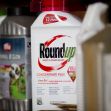A jury has reached a verdict that would require pharmaceutical giant Bayer to pay $62 million to students and others in Monroe, Washington’s Sky Valley Education Center.
The suit was brought by two parents, four former students, and one other adult who details having spent an excess of time at the school's campus for a community music program.
Over 200 students, parents, and teachers at the school were exposed to toxic chemicals in light ballasts. The toxic chemicals were polychlorinated biphenyls, or PCBs, a synthetic chemical that has been linked to harmful neurological and developmental problems, especially in fetuses, babies, and children. The plaintiffs in the suit reported suffering from skin lesions, hormonal diseases, asthma, and even cancer after having been exposed to them for months and in some cases, years on school grounds.
These now-banned, highly toxic chemicals are often used in electric equipment including transformers and capacitors. Chemical giant Monsanto, which was acquired by Bayer Pharmaceuticals in 2018, was the sole manufacturer of PCBs.
There have been 22 suits against Bayer related to the toxic chemicals. This latest win is the second verdict ordering Bayer to pay the plaintiffs damages. In July, a suit brought by three teachers resulted in a judgment against Bayer for $185 million, including $135 million in punitive damages.
In both suits, Bayer has vowed to fight the jury's ruling in post-trial motions. The company maintains that "undisputed evidence in this case does not support the conclusions that plaintiffs were exposed to unsafe levels of PCBs" on the school campus. Bayer maintains, “In reality, testing reflected extremely low levels of PCBs in this school.” Instead, the company details that the presence of the toxic chemicals is due to the school’s lack of effort to upgrade the building, particularly the fluorescent light fixtures that held the ballasts.
“These light ballasts were decades beyond their useful life, energy inefficient, and obsolete,” Bayer explained in response to the source of the leaking PCBs. “These are historic claims that relate to products Monsanto has not produced in more than 40 years and are unrelated to any ongoing business of Monsanto, and now Bayer.”
Bayer contends that the lighting fixtures including those in the school building were installed by Monsanto throughout the 1960s. From 1935 to 1977 Monsanto produced the chemical and distributed it to customers for use in electrical equipment. It wasn’t until 1979 that the government outlawed the use of PCBs.
Bayer had previously proposed a $648 million settlement for separate class-action lawsuits brought forward by cities and others. The suits claim that Bayer was responsible for contaminating wastewater with Monsanto’s PBCs. Last December, a U.S. federal judge rejected the company’s proposal. Bayer has since submitted a revised settlement proposal, and they are hopeful that it will move forward.






